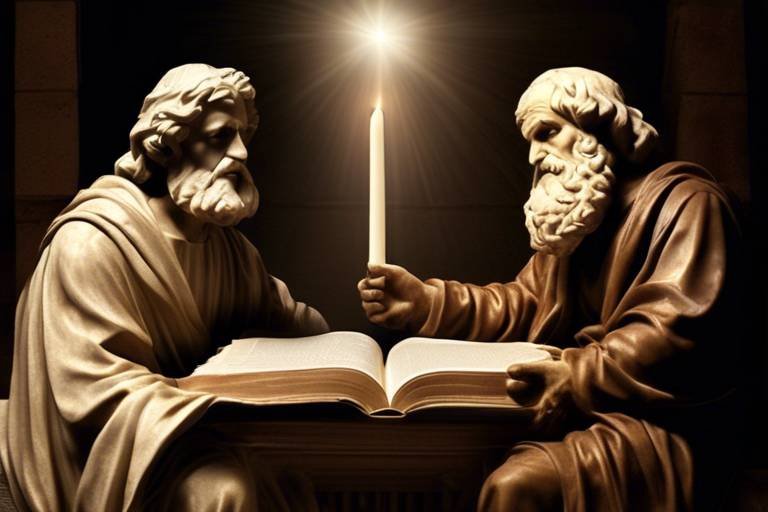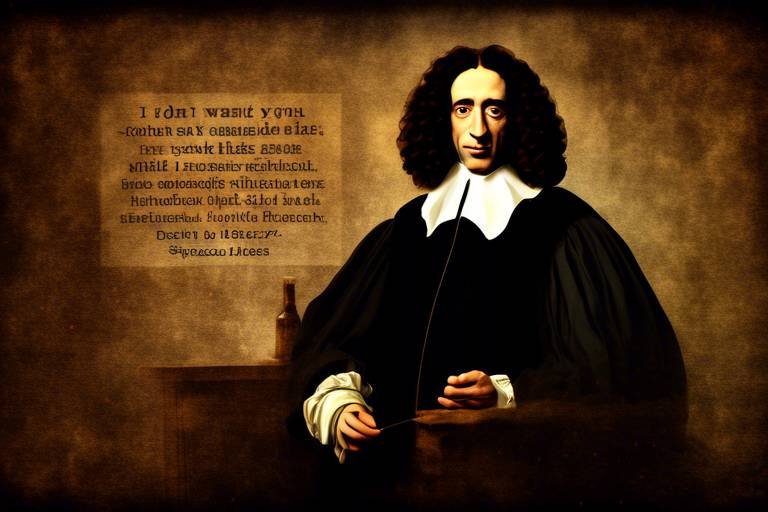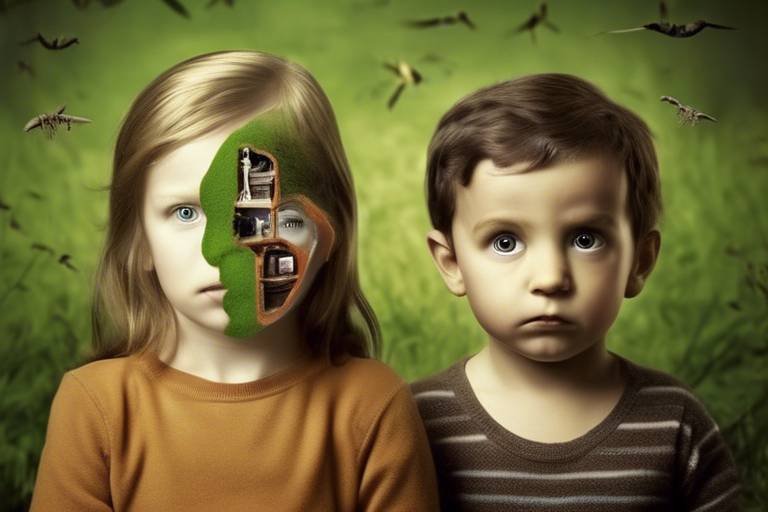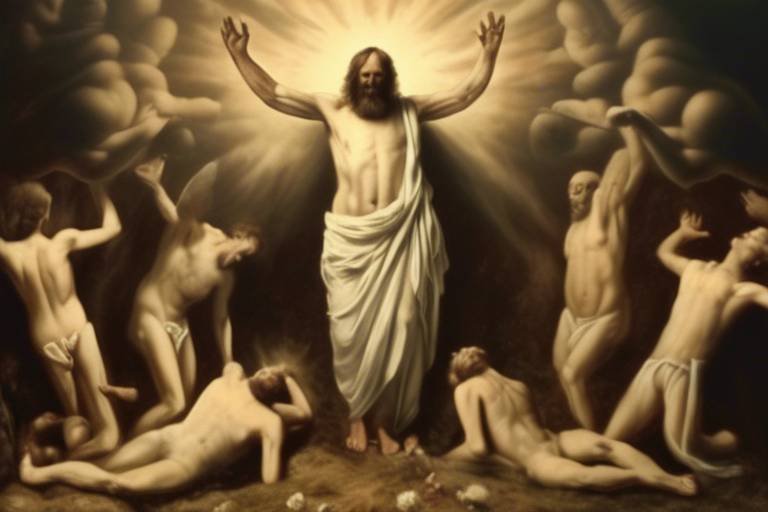Understanding The Difference Between Philosophy and Theology
In a world where the quest for knowledge and understanding is paramount, philosophy and theology stand as two towering pillars of inquiry. While they often intersect and influence one another, they each have unique methodologies, purposes, and implications. Philosophy, at its core, is about asking the big questions: What is existence? What can we know? What is the essence of morality? It invites us to think critically and rationally about the universe and our place within it. On the other hand, theology dives deep into the divine, exploring religious beliefs, practices, and experiences, often guided by faith and tradition. So, how do these two fields relate, and where do they diverge? Let's embark on a journey to unravel these complexities and discover how they shape our understanding of existence, morality, and the divine.
Philosophy is the study of fundamental questions regarding existence, knowledge, values, and reason. It's like a vast ocean of thought, where each wave represents a different inquiry into the nature of reality and human experience. Philosophers challenge us to think critically about our beliefs, pushing us to scrutinize the very foundations of our understanding. For instance, consider the question: "What is the meaning of life?" This isn't just a casual inquiry; it's a profound philosophical question that has sparked debates for centuries. Philosophy encourages us to explore various perspectives, from existentialism's focus on individual meaning to utilitarianism's emphasis on the greatest good for the greatest number. In essence, philosophy is about seeking truth through reasoned discourse and reflection.
Theology, in contrast, is the systematic study of the divine. It seeks to explore religious beliefs, practices, and experiences, often interpreting sacred texts and understanding the nature of God and spiritual truths. Imagine theology as a garden, where each plant represents a different belief system, flourishing under the care of its followers. This discipline invites us to delve into the rich tapestry of human spirituality, examining how different cultures and religions understand the divine. Whether it's the monotheism of Christianity and Islam or the polytheism of Hinduism, theology provides a framework for understanding how these beliefs shape moral values and community identities. It's a deeply personal exploration that often intertwines with the lives of those who engage with it.
The roots of philosophy can be traced back to ancient civilizations, where thinkers like Socrates, Plato, and Aristotle laid the groundwork for Western philosophical thought. Their inquiries into ethics, politics, and metaphysics have influenced countless disciplines and cultures, creating a rich legacy that continues to resonate today. For example, Socrates' method of questioning—now known as the Socratic method—encourages critical thinking and dialogue, fostering a deeper understanding of complex issues. As we move through history, we see the emergence of various philosophical schools that have shaped our understanding of knowledge and existence.
Different philosophical schools, such as empiricism, rationalism, and existentialism, offer unique perspectives on knowledge and existence. These schools have evolved through the centuries, each contributing to the rich tapestry of philosophical inquiry. For instance, empiricism emphasizes knowledge gained through sensory experience, while rationalism posits that reason is the primary source of knowledge. Existentialism, on the other hand, focuses on individual existence and the search for meaning in an often indifferent universe. These diverse viewpoints enrich the philosophical landscape, inviting us to consider multiple angles on the same fundamental questions.
Philosophy employs various methods, including logical analysis, phenomenology, and dialectics, to tackle complex questions. These methodologies emphasize rational discourse and critical examination of beliefs, allowing philosophers to dissect intricate ideas and arguments. For instance, logical analysis helps clarify concepts and arguments, while phenomenology focuses on the subjective experience of individuals. Dialectics, rooted in the works of Hegel, encourages the exploration of contradictions and the synthesis of opposing ideas. Together, these approaches create a robust framework for philosophical inquiry, enabling us to navigate the murky waters of human thought.
Theology plays a significant role in shaping moral frameworks, social norms, and cultural identities. It influences how communities understand their relationship with the divine and the universe. In many societies, theological beliefs underpin laws, ethics, and community values, guiding individuals in their daily lives. For instance, the teachings of various religions often promote compassion, justice, and love, serving as a moral compass for adherents. In this way, theology not only enriches individual spirituality but also fosters a sense of community and belonging among its followers.
While both disciplines seek to answer profound questions, philosophy relies on reason and critical analysis, whereas theology is often rooted in faith and religious tradition. This fundamental difference leads to varying conclusions about existence, morality, and the divine. For instance, a philosopher might argue about the nature of good and evil through rational discourse, while a theologian may refer to sacred texts and divine revelation to understand these concepts. This divergence highlights the unique contributions each discipline offers to our understanding of the world.
Despite their differences, philosophy and theology intersect in areas such as ethics, metaphysics, and epistemology. Philosophical reasoning can enhance theological understanding and vice versa. For example, ethical theories developed by philosophers can inform theological discussions on morality, while theological insights can provide depth to philosophical inquiries about existence and purpose. This interplay enriches both fields, encouraging a dialogue that fosters greater understanding of complex issues.
In today's complex world, philosophy and theology continue to provide valuable frameworks for addressing ethical dilemmas, existential questions, and the search for meaning in human life. As we face challenges such as climate change, social justice, and technological advancements, the insights from both disciplines can guide our responses. Philosophy encourages critical thinking and rational discourse, while theology offers a moral compass rooted in spiritual beliefs. Together, they equip us with the tools necessary to navigate the complexities of modern existence.
- What is the main difference between philosophy and theology? Philosophy relies on reason and critical thinking, while theology is based on faith and religious beliefs.
- Can philosophy and theology coexist? Yes, they often intersect and can enrich each other's understanding of complex issues.
- Why are both disciplines important today? They provide frameworks for addressing ethical dilemmas and existential questions in a rapidly changing world.

Defining Philosophy
Philosophy is often described as the study of fundamental questions regarding existence, knowledge, values, and reason. It's like a vast ocean of thought where each wave represents a different inquiry into the nature of reality. Imagine standing on the shore, gazing out at the horizon, wondering about the meaning of life, the nature of truth, or what it means to be good. This is the essence of philosophy—it encourages critical thinking and challenges us to dig deeper into the underlying principles that govern our reality and human experience.
At its core, philosophy is about asking questions. It’s a discipline that doesn’t shy away from the big stuff. What is the meaning of life? Is there a universal morality? How do we know what we know? These inquiries lead philosophers down many paths, each offering unique insights. For instance, some philosophers, like Socrates, famously believed in the power of questioning as a way to achieve greater understanding, while others, like Plato, proposed that there are ideal forms of reality that we can only glimpse through reason.
Philosophy is not just an abstract exercise; it has practical implications for our daily lives. It shapes our worldviews and influences our decision-making processes. For example, consider how philosophical ideas about ethics can guide our behavior. When faced with a moral dilemma, philosophical frameworks can help us weigh our options and arrive at a thoughtful conclusion. This is where philosophy intersects with everyday life, providing tools to navigate complex situations.
Moreover, philosophy is divided into several branches, each focusing on different aspects of human inquiry. Some of these branches include:
- Metaphysics: The study of the nature of reality and existence.
- Epistemology: The investigation of knowledge and belief.
- Ethics: The exploration of moral values and principles.
- Logic: The study of reasoning and argumentation.
Each of these branches contributes to a richer understanding of philosophical inquiry. For instance, while metaphysics might explore whether the universe is deterministic, ethics would examine how that belief impacts our moral choices. The interplay between these branches creates a dynamic landscape where ideas can flourish and challenge one another.
In conclusion, philosophy is a vital discipline that pushes us to explore profound questions about our existence and the world around us. Its emphasis on critical thinking and reason not only enriches our intellectual lives but also provides valuable insights that can enhance our everyday experiences. By engaging with philosophical ideas, we can cultivate a deeper understanding of ourselves and our place in the universe.

Defining Theology
Theology, at its core, is the systematic study of the divine. It delves into the intricate tapestry of religious beliefs, practices, and experiences that shape our understanding of the universe and our place within it. Unlike philosophy, which often approaches questions from a more abstract and critical perspective, theology is deeply rooted in faith and the traditions of specific religious communities. This discipline seeks to interpret sacred texts, uncover the nature of God, and explore spiritual truths that have been passed down through generations.
One of the fascinating aspects of theology is its ability to adapt and respond to the cultural and historical contexts in which it exists. For instance, the theological perspectives of the early Church Fathers were influenced by the philosophical debates of their time, creating a rich dialogue between faith and reason. This interaction continues today, as theologians engage with contemporary issues, such as social justice, environmental ethics, and human rights, drawing from both ancient texts and modern insights.
Moreover, theology is not a monolithic field; it encompasses a diverse range of traditions and interpretations. Here are some key branches of theology that illustrate this diversity:
- Systematic Theology: This branch organizes and synthesizes religious beliefs into a coherent framework, addressing questions about God, humanity, and salvation.
- Biblical Theology: This focuses on understanding the Scriptures within their historical and cultural contexts, emphasizing the narrative and message of the Bible.
- Practical Theology: This applies theological insights to real-world situations, guiding practices in areas like pastoral care, ethics, and community engagement.
The implications of theology extend beyond personal belief systems; they influence societal norms and ethical frameworks. For instance, many social movements have drawn upon theological principles to advocate for change, emphasizing the moral obligation to care for the marginalized and oppressed. This intersection of theology and social action underscores the profound impact that theological thought can have on the world.
In summary, theology is not merely an academic pursuit; it is a vibrant field that seeks to answer some of life's most profound questions. By exploring the nature of the divine, interpreting sacred texts, and applying these insights to contemporary issues, theology offers a pathway to understanding not just the divine, but also our own humanity. It invites us to engage in a dialogue that is both personal and communal, challenging us to reflect on our beliefs and their implications for the world around us.

Historical Context of Philosophy
Philosophy, as we know it today, has a rich and intricate history that stretches back thousands of years. Its roots can be traced to ancient civilizations, where the quest for knowledge and understanding began to take shape. Thinkers like Socrates, Plato, and Aristotle are often credited as the founding fathers of Western philosophy, each contributing unique perspectives that have influenced countless generations.
Socrates, known for his method of questioning, challenged the status quo and encouraged individuals to seek knowledge through dialogue. His approach, often referred to as the Socratic Method, laid the groundwork for critical thinking and self-examination. Plato, a student of Socrates, built upon these ideas, introducing the concept of ideal forms and the theory of knowledge as recollection. His works, particularly "The Republic," continue to resonate in discussions about justice and morality.
Aristotle, a student of Plato, took a different path by emphasizing empirical observation and categorization of knowledge. He believed that understanding the world required a systematic approach, which led to the establishment of various fields, including biology, ethics, and politics. The contributions of these ancient philosophers not only shaped philosophical thought but also influenced other disciplines such as science, art, and politics.
As we move through history, the influence of philosophy expanded beyond the Greeks. The Hellenistic period saw the emergence of schools like Stoicism and Epicureanism, which focused on personal ethics and the pursuit of happiness. In the Middle Ages, philosophy intertwined with theology, as scholars like St. Augustine and Thomas Aquinas sought to reconcile faith with reason, paving the way for the Renaissance's revival of classical thought.
The Enlightenment marked a significant turning point in philosophical history, as thinkers like Descartes, Locke, and Kant emphasized reason and individualism. This era questioned traditional authority and championed the idea that knowledge could be attained through rational thought and empirical evidence. The debates that arose during this time laid the foundation for modern philosophy, which continues to grapple with issues of existence, morality, and knowledge.
In contemporary times, philosophy has branched into various schools of thought, including existentialism, analytic philosophy, and postmodernism. Each of these movements addresses the complexities of human experience, often challenging established norms and encouraging new ways of thinking. The historical context of philosophy is not merely a timeline of events; it is a dynamic interplay of ideas that continues to evolve as society changes.
To summarize, the historical trajectory of philosophy is marked by a series of transformative thinkers and movements that have shaped our understanding of existence and knowledge. From the ancient Greeks to contemporary philosophers, the dialogue continues, inviting us to explore the profound questions that define our humanity.
- What is the main focus of philosophy? Philosophy primarily seeks to explore fundamental questions about existence, knowledge, values, and reason.
- How does theology differ from philosophy? Theology is centered around the study of the divine and religious beliefs, often rooted in faith, whereas philosophy relies on reason and critical analysis.
- Who are some key figures in the history of philosophy? Notable philosophers include Socrates, Plato, Aristotle, Descartes, and Kant, among many others.
- How are philosophy and theology interconnected? Both disciplines intersect in areas such as ethics and metaphysics, where philosophical reasoning can enhance theological understanding.

Major Philosophical Schools
When we delve into the rich tapestry of philosophical thought, we encounter a myriad of schools that have shaped our understanding of existence and knowledge. Each school offers a unique lens through which to view the world, much like how different artists might portray the same landscape using varying styles and techniques. These schools include, but are not limited to, empiricism, rationalism, existentialism, and pragmatism. Each one has its distinct methodology and underlying principles, which contribute to the broader philosophical discourse.
Empiricism emphasizes the role of sensory experience in the formation of knowledge. Think of it as the philosophy that says, “Seeing is believing.” Empiricists argue that all knowledge comes from what we can observe and experience. This school has roots in the works of John Locke and David Hume, who posited that our understanding of the world is fundamentally shaped by our interactions with it. For instance, if you touch a hot stove and get burned, that experience teaches you something fundamental about heat and safety.
On the other hand, rationalism posits that reason and intellect are the primary sources of knowledge. Imagine trying to solve a puzzle without seeing the pieces; rationalists believe that some truths can be known through reason alone, independent of sensory experience. Thinkers like René Descartes and Baruch Spinoza championed this view, arguing that certain concepts, such as mathematical truths, are innate and can be uncovered through logical deduction. For rationalists, the mind is the ultimate tool for understanding reality.
Existentialism takes a different approach altogether, focusing on individual existence, freedom, and choice. This school emerged in the 20th century, with philosophers like Jean-Paul Sartre and Simone de Beauvoir emphasizing the importance of personal experience and responsibility. Existentialists grapple with questions like: What does it mean to exist? How do we find meaning in a seemingly indifferent universe? They argue that each person must create their own meaning and navigate the absurdities of life, much like a traveler charting a course through uncharted waters.
Finally, pragmatism offers a practical perspective, suggesting that the truth of an idea is determined by its practical consequences. Founded by thinkers like Charles Sanders Peirce and William James, pragmatism encourages us to evaluate ideas based on their applicability and effectiveness in real-world situations. It’s akin to testing a new recipe; if it tastes good and works well, it’s worth keeping. Pragmatists believe that philosophical inquiry should be grounded in the realities of human experience, making it a dynamic and adaptable approach.
In summary, these major philosophical schools—empiricism, rationalism, existentialism, and pragmatism—each contribute to the diverse landscape of philosophical thought. They provide various frameworks for understanding the world and our place within it, showing that the quest for knowledge is as multifaceted as the human experience itself.
- What is the main difference between philosophy and theology? Philosophy relies on reason and critical analysis, while theology is rooted in faith and religious tradition.
- Can philosophy and theology coexist? Absolutely! They often intersect and can enrich each other’s understanding of complex questions.
- Why are philosophical schools important? They offer diverse perspectives that help individuals navigate existential questions and moral dilemmas.

Philosophy's Methodological Approaches
Philosophy, at its core, is a quest for understanding the intricacies of existence, knowledge, and values. To navigate this complex terrain, philosophers employ a variety of methodological approaches that serve as tools for inquiry and analysis. These methods not only guide philosophical discussions but also help clarify and dissect profound questions about life, reality, and our place within it.
One of the primary approaches is logical analysis, which involves breaking down arguments into their constituent parts to evaluate their validity. Think of it as a mechanic inspecting an engine; by understanding each component, one can determine whether the whole system is functioning properly. This method encourages clarity and precision in thought, pushing philosophers to articulate their ideas in a way that can withstand scrutiny.
Another significant approach is phenomenology. This method, pioneered by philosophers like Edmund Husserl, focuses on the structures of experience and consciousness. It invites individuals to examine their perceptions and how they experience the world around them. Imagine standing in front of a beautiful painting; phenomenology encourages you to explore not just what you see, but how that sight makes you feel and the meanings you derive from it. This introspective approach opens up a rich dialogue about subjective experiences and the essence of being.
Dialectics is yet another method that plays a crucial role in philosophical inquiry. This approach involves the art of dialogue and debate, where opposing viewpoints are presented and examined to arrive at a deeper understanding of the truth. Picture a dance between two partners, each moving in harmony yet challenging each other’s steps. Through this dynamic interaction, new insights can emerge, leading to a synthesis of ideas that may not have been apparent in isolation.
Moreover, philosophy often incorporates historical analysis, examining the evolution of ideas over time. By understanding the context in which philosophical thoughts were developed, one can appreciate the rich tapestry of human thought. This historical lens helps illuminate how past thinkers have shaped contemporary debates and how their ideas continue to resonate today.
In summary, philosophy's methodological approaches are diverse and multifaceted, each offering unique insights into the fundamental questions of existence. Whether through logical analysis, phenomenology, dialectics, or historical inquiry, these methods enable philosophers to engage deeply with complex ideas, fostering a continuous exploration of what it means to be human in an ever-changing world.
- What is the main difference between philosophy and theology? Philosophy relies on reason and critical analysis, while theology is rooted in faith and religious tradition.
- How do philosophical methods enhance theological understanding? Philosophical reasoning can clarify and deepen the interpretation of theological concepts, making them more accessible and relatable.
- Can philosophy and theology coexist? Absolutely! They often intersect and enrich each other, providing a more comprehensive understanding of existence and morality.
- Why is it important to study both disciplines? Studying both philosophy and theology equips individuals with the tools to tackle ethical dilemmas and existential questions, fostering a deeper understanding of life and the divine.

The Role of Theology in Society
Theology is not just an abstract discipline confined to the walls of seminaries or universities; it has a profound impact on our daily lives and society at large. Think of theology as the moral compass guiding communities through the complexities of existence. It shapes our understanding of right and wrong, influencing laws, social norms, and cultural identities. For instance, many societies derive their ethical frameworks from theological principles, which dictate how individuals interact with one another and the world around them.
Moreover, theology fosters a sense of community and belonging among its adherents. Religious gatherings, rituals, and shared beliefs create bonds that unite individuals, providing them with a collective identity. This sense of unity can be incredibly powerful, especially in times of crisis. When faced with challenges, be it personal struggles or societal upheavals, people often turn to their theological beliefs for comfort and guidance. It's like having a sturdy lifeboat in a turbulent sea, offering safety and reassurance amid chaos.
In addition to shaping personal values, theology also plays a critical role in public discourse. It often informs debates on pressing social issues such as justice, equality, and human rights. For example, many religious leaders and organizations advocate for social change based on theological principles, arguing for the dignity of all individuals as created beings. This can lead to significant movements that challenge the status quo and push for a more equitable society.
Furthermore, theology encourages individuals to reflect on existential questions—questions about purpose, meaning, and the nature of the divine. This introspection can lead to a deeper understanding of oneself and one's place in the universe. In a world that often feels chaotic and disconnected, theology offers a framework for exploring these profound inquiries, allowing individuals to find solace and clarity.
To illustrate the multifaceted role theology plays in society, consider the following table that outlines key aspects of its influence:
| Aspect | Description |
|---|---|
| Moral Framework | Guides ethical behavior and social norms. |
| Community Building | Creates bonds among individuals through shared beliefs. |
| Public Discourse | Informs debates on social issues and justice. |
| Existential Reflection | Encourages introspection on purpose and meaning. |
In conclusion, the role of theology in society is multifaceted and deeply ingrained in the fabric of human experience. It shapes moral values, fosters community, influences public discourse, and encourages personal reflection. As we navigate the complexities of modern life, understanding the significance of theology can provide us with the tools to engage more thoughtfully with ourselves and each other.
- What is the primary difference between theology and philosophy?
Philosophy relies on reason and critical analysis, while theology is often rooted in faith and religious tradition. - How does theology influence social justice?
Theology often provides the ethical foundation for advocating social justice, as many religious teachings emphasize the dignity and worth of all individuals. - Can philosophy and theology coexist?
Yes, while they have different methodologies, they can enrich each other, especially in areas such as ethics and existential questions.

Philosophy vs. Theology: Key Differences
When diving into the realms of philosophy and theology, it’s essential to recognize that while they both grapple with profound questions about existence, morality, and the universe, their approaches and foundations differ significantly. Philosophy is like a vast ocean of inquiry, where the currents of reason and logic guide the exploration of life’s biggest questions. Think of it as a never-ending quest for understanding, where each question leads to another, much like a rabbit hole that twists and turns into deeper realms of thought.
On the other hand, theology is more akin to a garden cultivated by faith and tradition. It thrives on the rich soil of religious beliefs and sacred texts, aiming to uncover the nature of the divine and our relationship with it. While philosophy often questions the very foundations of reality, theology tends to accept certain premises based on faith, using those as a springboard to explore spiritual truths. This distinction is crucial because it shapes how each discipline approaches its inquiries. For instance, a philosopher might ask, "What is the nature of existence?" while a theologian might frame the question as, "What does our faith say about the nature of existence?"
Moreover, the methodologies employed by each discipline further highlight their differences. Philosophy prides itself on employing rigorous critical analysis and logical reasoning. Philosophers often engage in debates, dissecting arguments to arrive at conclusions that are open to challenge and reinterpretation. In contrast, theology often relies on revelation and tradition, interpreting sacred texts and doctrines that have been passed down through generations. This reliance on established beliefs can create a sense of certainty within theological discussions that is often absent in philosophical discourse.
To illustrate these differences more clearly, consider the following table:
| Aspect | Philosophy | Theology |
|---|---|---|
| Foundation | Reason and logic | Faith and tradition |
| Methodology | Critical analysis and debate | Interpretation of sacred texts |
| Questions Asked | What is existence? | What does God reveal about existence? |
| Outcome | Open to reinterpretation | Often definitive based on doctrine |
Despite these differences, both philosophy and theology can enrich our understanding of the world. They are like two sides of the same coin, each offering unique insights that can complement one another. For example, philosophical ethics can provide a framework for theological discussions about morality, while theological insights can deepen philosophical inquiries into the nature of existence.
In conclusion, while philosophy and theology may diverge in their approaches and foundations, both play significant roles in our quest for understanding. They challenge us to think critically, reflect deeply, and seek answers to the questions that define our humanity.
- What is the main focus of philosophy? Philosophy primarily focuses on fundamental questions about existence, knowledge, values, and reason.
- How does theology differ from philosophy? Theology is rooted in faith and religious tradition, while philosophy relies on reason and critical analysis.
- Can philosophy and theology coexist? Yes, they can coexist and often enrich one another, providing a broader understanding of moral and existential questions.
- Are there any overlaps between philosophy and theology? Yes, both disciplines intersect in areas like ethics, metaphysics, and epistemology.

Overlap Between Philosophy and Theology
The relationship between philosophy and theology is a fascinating tapestry woven from threads of inquiry, belief, and understanding. At first glance, these two fields may seem like distinct realms—one grounded in reason and the other in faith. However, they often dance together, exploring similar questions about existence, morality, and the divine. This overlap can be seen in various areas, such as ethics, metaphysics, and epistemology.
Take ethics, for instance. Both philosophers and theologians grapple with questions of right and wrong, justice and virtue. Philosophers may approach these issues through rational arguments and logical frameworks, while theologians often draw upon sacred texts and divine commandments. Yet, when you peel back the layers, you'll find that both disciplines seek to understand what it means to live a good life. This shared pursuit can lead to profound insights that enrich both philosophical discourse and theological understanding.
Moreover, in the realm of metaphysics, questions about the nature of reality and existence are paramount. Philosophers might ponder the essence of being, while theologians explore the nature of God and the universe. Here, the overlap becomes particularly intriguing. For example, the philosophical concept of the first cause resonates with theological discussions about the origin of the universe. Both perspectives can complement each other, providing a more holistic view of existence.
Epistemology, the study of knowledge, also highlights the intersection of these two fields. Philosophers ask, "What can we know?" and "How do we know it?" Meanwhile, theologians consider the sources of divine knowledge and revelation. This interplay can lead to rich dialogues about faith and reason, prompting questions such as: Can faith provide a valid form of knowledge? Or, does reason undermine religious belief? These discussions not only challenge the boundaries of each discipline but also encourage a deeper exploration of human understanding.
In a world where existential questions loom large, the overlap between philosophy and theology becomes increasingly relevant. As we navigate the complexities of modern life, the insights from both fields can guide us in our search for meaning. Whether through philosophical inquiry or theological reflection, the quest for understanding remains a shared human experience, illuminating our paths in the journey of life.
- What is the main difference between philosophy and theology?
Philosophy relies on reason and critical analysis to explore fundamental questions, while theology is rooted in faith and religious tradition. - Can philosophy and theology coexist?
Yes, they can coexist and often enrich each other, especially in areas like ethics and metaphysics. - How do philosophy and theology address moral questions?
Philosophy uses logical reasoning to explore moral dilemmas, while theology often refers to sacred texts and divine principles. - Are there any famous philosophers who influenced theology?
Absolutely! Thinkers like Augustine and Aquinas have had a profound impact on theological thought.

Contemporary Relevance of Both Disciplines
In an era characterized by rapid change and uncertainty, the relevance of both philosophy and theology has never been more pronounced. These fields offer essential tools for navigating the complexities of modern life and addressing the profound questions that arise in our daily existence. From ethical dilemmas spurred by technological advancements to existential crises brought about by global events, the insights derived from philosophy and theology help us make sense of our world.
Philosophy, with its emphasis on critical thinking and reasoning, encourages individuals to question assumptions and explore different perspectives. This is particularly important in today's society, where misinformation can spread rapidly. By fostering a culture of inquiry, philosophy empowers people to engage in meaningful discussions about pressing issues such as climate change, social justice, and personal identity. For instance, when we consider the ethical implications of artificial intelligence, philosophical frameworks can guide us in making decisions that align with our values.
On the other hand, theology provides a framework for understanding the divine and our place in the universe. It addresses questions of purpose, meaning, and morality, offering comfort and guidance to those grappling with life's uncertainties. In times of crisis, people often turn to their faith for solace and direction. Theological perspectives can help individuals and communities navigate challenges by reinforcing shared values and offering a sense of belonging. For example, during global pandemics or natural disasters, religious communities often play a crucial role in providing support and fostering resilience.
Moreover, the intersection of philosophy and theology is particularly relevant in contemporary discussions about ethics. Issues such as bioethics, environmental ethics, and social ethics often require a nuanced understanding that draws from both disciplines. Philosophical analysis can help clarify ethical principles, while theological insights can provide a deeper understanding of the moral implications of our actions. Together, they create a comprehensive approach to addressing the ethical challenges we face today.
To illustrate the contemporary relevance of philosophy and theology, consider the following table that highlights key areas where both disciplines converge:
| Area of Inquiry | Philosophical Approach | Theological Perspective |
|---|---|---|
| Ethics | Utilitarianism, Deontology | Virtue Ethics, Divine Command Theory |
| Existential Questions | Existentialism, Absurdism | Faith, Purpose in Life |
| Meaning of Life | Humanism, Nihilism | Spiritual Fulfillment, Salvation |
In conclusion, both philosophy and theology are integral to our understanding of the human experience. They provide frameworks that help us navigate the complexities of existence, morality, and the divine. As we continue to face new challenges in our rapidly changing world, the insights from these disciplines will remain invaluable in guiding our thoughts and actions.
- What is the main difference between philosophy and theology? Philosophy primarily relies on reason and critical thinking, while theology is often based on faith and religious beliefs.
- How do philosophy and theology intersect? Both disciplines explore similar questions about existence, morality, and the nature of the divine, often enriching each other's understanding.
- Why are philosophy and theology important today? They provide frameworks for addressing ethical dilemmas and existential questions, helping individuals and communities find meaning and direction in a complex world.
Frequently Asked Questions
- What is the primary focus of philosophy?
Philosophy primarily focuses on fundamental questions about existence, knowledge, values, and reason. It encourages critical thinking and aims to uncover the underlying principles that govern reality and human experience.
- How does theology differ from philosophy?
Theology differs from philosophy in that it is the systematic study of the divine and religious beliefs. While philosophy relies on reason and critical analysis, theology is often rooted in faith and religious tradition, leading to distinct conclusions about existence and morality.
- Can philosophy and theology overlap?
Yes, philosophy and theology can overlap significantly, particularly in areas such as ethics, metaphysics, and epistemology. Philosophical reasoning can enhance theological understanding, and theological insights can inform philosophical inquiries.
- What historical figures are important in philosophy?
Important historical figures in philosophy include Socrates, Plato, and Aristotle. Their contributions laid the groundwork for Western philosophical thought and continue to influence various disciplines and cultures today.
- What are some major philosophical schools?
Some major philosophical schools include empiricism, rationalism, and existentialism. Each of these schools offers unique perspectives on knowledge and existence, shaping the evolution of philosophical inquiry throughout history.
- What role does theology play in society?
Theology plays a crucial role in shaping moral frameworks, social norms, and cultural identities. It influences how communities understand their relationship with the divine and the universe, impacting various aspects of life.
- Why are philosophy and theology relevant today?
In today’s complex world, philosophy and theology provide valuable frameworks for addressing ethical dilemmas, existential questions, and the search for meaning in human life. They help individuals navigate the challenges of modern existence.



















